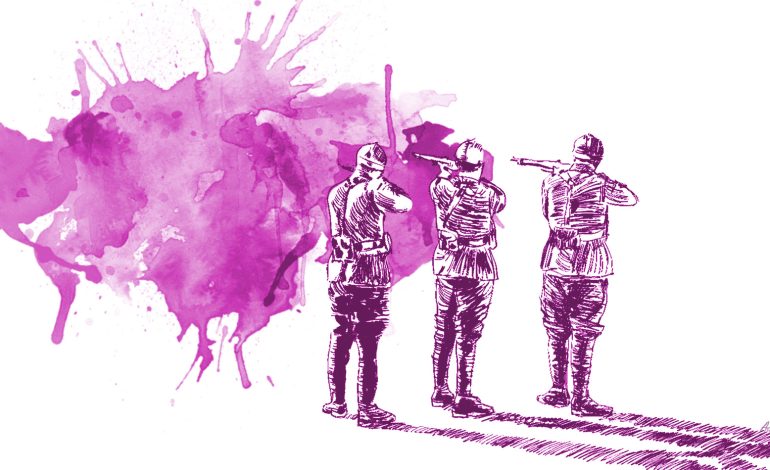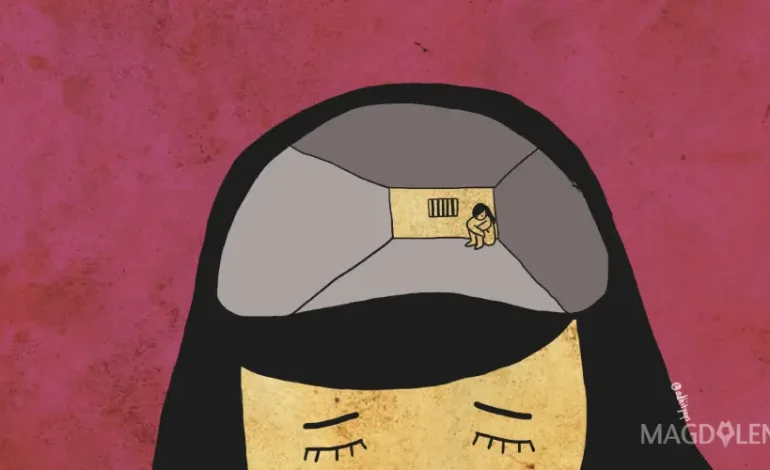Heroin Queen? Merry Utami’s Life Tells a Different Story

In Indonesian media reports, she is dubbed “ratu heroin” or “heroin queen”, but Merry Utami’s path to death row had none of the riches or glamour. Rather, Merry’s story is one of tragedy. A domestic worker abroad fleeing an abusive husband, Merry fell victim to an international drug syndicate.
On Saturday, the 42-year-old grandmother was transferred from a prison in Tangerang to Nusakambangan, where the “third wave” of executions in Indonesia’s war on drugs is nigh. Authorities have not confirmed it, but it’s expected 14 drug offenders will go before the firing squad on Friday night, and that Merry will be the only woman among them.
In the final hours before they are executed, death row prisoners in Indonesia can make a final request – perhaps a special meal, a prayer service or time with a loved one.
Merry’s last wish is simple: for President Joko Widodo to carefully examine her request for clemency.
Lawyers from legal aid group LBH Masyarakat filed the urgent request on Tuesday, accompanied by a brief letter in Merry’s simple handwriting.
“Bapak really I regret that my foolishness made an offense of the law,” she says.
“Hopefully Bapak Jokowi with generosity can forgive all that I’ve ever done.”
Merry’s lawyers say she should not be killed until this request is either granted or rejected.
Merry’s path to death row
It has been extensively reported that Merry was caught with 1.1 kg of heroin at Sukarno Hatta Airport, Jakarta, in October 2001. In 2003, she lost her appeal to overturn her death sentence, and only as she was being moved to Nusakambangan did she learn a judicial review (PK) into her case was also unsuccessful.
Merry was placed in an isolation cell and offered religious support as she prepares for death.
How did it come to this?
According to the National Commission on Violence Against Women (Komnas Perempuan), Merry was first forced into overseas domestic work by her ex-husband.
While the woman from Sukohardjo, Central Java, worked hard in Taiwan and sent her earnings back home, her husband spent the money and was abusive. Aged 27, she decided to leave the marriage, but return to work abroad to support herself and her child.
Alone and vulnerable, she was in Jakarta preparing the paperwork when she met a Canadian man, “Jerry”, who showered her with gifts and kindness over a three-month romance. Jerry invited Merry on a holiday in Nepal, and after three days told her he had to return to Jakarta early for business.
Being ever so generous, Jerry said a friend would give her a new bag to take home, because her own bag was old. When given the bag, Merry questioned why it was so heavy. The friend of Jerry casually told her it was because the leather was of good quality.
Merry returned to Indonesia, taking this new bag on board the flight as her cabin bag. She had left the airport – and had almost reached the taxi queue – when she remembered she hadn’t picked up her suitcase. Merry went back inside the airport, found her suitcase, and on leaving the airport a second time, volunteered her bags for x-ray scanning – not suspecting anything was hidden in her bag.
The drugs were found, and Merry was arrested at the airport.
A new nightmare begins
Naturally, the first person Merry called for help was Jerry. But his phone number was already not active, and she realized she had been deceived.
According to lawyers from legal aid group LBH Masyarakat, Merry endured multiple beatings at the hands of police, was tortured and forced to confess the heroin was hers. She was even taken from the police station and interrogated further at a hotel, where she was threatened with rape.
Merry has now been living with the shadow of execution hanging over her for 13 years.
LBH Masyarakat lawyer Ricky Gunawan says President Jokowi has all of this information about Merry’s life available as he weighs up her fate. The execution should be on hold, he says, while the petition for clemency is considered.
However, history shows that Jokowi may not consider Merry’s circumstances.
When he refused clemency to Andrew Chan and Myuran Sukumaran – two Australians who were among eight prisoners executed in April last year – he did not view documents showing their rehabilitation during 10 years in jail. On the other hand, at the same time, Jokowi granted a reprieve to Filipina Mary Jane Veloso, who was in a similar situation to Merry.
Mary Jane, a single mum and domestic worker, says she was tricked into bringing 2.6 kg of heroin into Yogyakarta six years ago. Now the couple who recruited her are on trial in the Philippines, and Mary Jane is alive to give evidence.
The plight of domestic workers
Komnas Perempuan says Merry’s dire situation shows the Indonesian government has not learned from the case of Mary Jane. Vice chairwoman Yuniyanti Chuzaifah says information about the cases of both Mary Jane and Merry have been sent directly to Jokowi.
“If the president read them, he must understand,” she says.
“There are indications that MU is a victim of trafficking…there is the potential here for the death penalty to be used on a victim.”
The commission is asking the president to address the real factors that led these women to prison: poverty, lack of education, and, often, domestic violence.
Domestic workers are the ideal targets for ruthless drug syndicates. They have passports and are often desperate to escape poverty. They are far from family and friends and legal support. There are at least four other women on death row in Indonesia in this situation, says Komnas Perempuan.
Merry’s daughter and grandchildren have been spending their last hours together in deep conversation, her lawyers say. If Merry’s mercy bid fails, she will soon be taken from her cell in handcuffs, blindfolded and shot in a field on Nusakambangan. Her family has promised to take care of her body after her death.
Gabrielle Dunlevy (@gabdunlevy) is a journalist, traveller and former Jakarta-based correspondent for Australian Associated Press. She reported on the 2015 executions in Indonesia, is passionate about social justice, and good coffee.
Update: Early on Friday 29/7, executions took place at Nusakambangan. Only four of the 14 prisoners were taken to the firing squad, and Merry was not one of them. The authorities have not given a reason for this. Merry remains on death row.






















